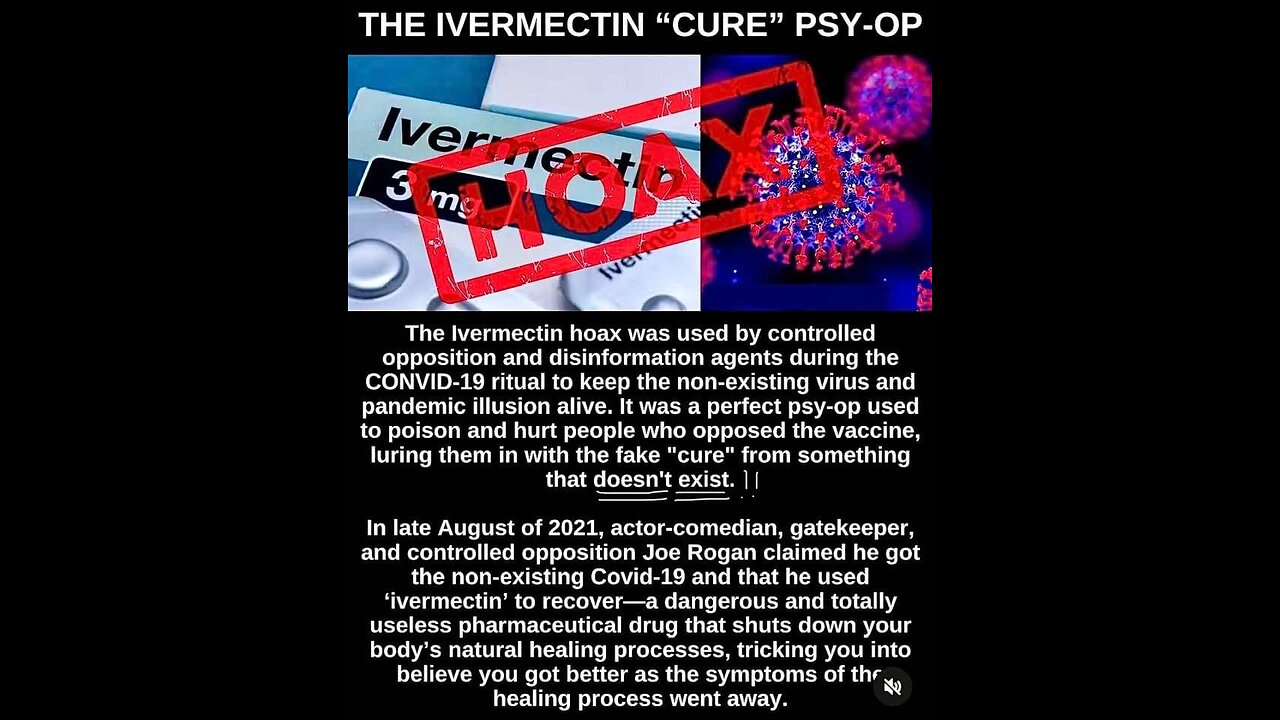Premium Only Content

Exosomes, Viruses, and the Trojan Hypothesis: Unlocking the Hidden Dimensions of Biology
In recent years, exosomes—microscopic extracellular vesicles—have become the focus of intense scientific inquiry, blurring the lines between fundamental biology, medicine, and even conspiracy theories. The interplay between exosomes and viruses, particularly HIV, is a rich area of research that raises profound questions about the mechanisms of disease, cellular communication, and the potential for both therapeutic innovation and biological manipulation.
The information presented in Dr. Stephen Gold’s lecture on exosome biogenesis, retrovirus budding, and the “Trojan Exosome Hypothesis” offers fertile ground for developing advanced theories that challenge the conventional understanding of health, immunity, and even the integrity of scientific narratives. Here, we expand upon these concepts to explore groundbreaking perspectives and their implications.
1. What Are Exosomes? The Secret Communicators of Life
Exosomes are small, lipid-bound vesicles secreted by cells to facilitate intercellular communication. Their primary role is to transport signaling molecules such as proteins, lipids, and RNA between cells. This process is crucial for maintaining cellular homeostasis, tissue repair, and immune response.
Dr. Gold’s work highlights the dual role of exosomes in normal physiology and pathophysiology. They are involved in processes ranging from tissue repair to the spread of diseases like cancer. Most notably, exosomes share striking similarities with viruses—raising the provocative question: Are viruses hijacked exosomes, or are exosomes mischaracterized as viruses?
2. The Trojan Exosome Hypothesis: A Paradigm Shift
The “Trojan Exosome Hypothesis” suggests that retroviruses like HIV exploit exosome biogenesis pathways to escape host cells and infect new ones. This hypothesis is rooted in several striking observations:
• Shared Pathways: Both exosomes and retroviruses bud from the plasma membrane, utilizing similar molecular mechanisms and cargo proteins.
• Structural Overlap: Exosomes and retroviruses have comparable sizes, lipid compositions, and host protein markers.
• Viral Mimicry: Retroviruses appear to mimic exosome pathways to evade immune detection and enhance infectivity.
This hypothesis challenges the traditional “pathogen-centered” view of viruses, suggesting that they may be misunderstood as parasitic hijackers of a naturally occurring cellular mechanism. It also forces us to reconsider the origins and evolution of retroviruses—could they be an evolutionary offshoot of exosomal communication systems?
3. Viruses as Hijacked Exosomes: Bridging Biology and Conjecture
If retroviruses exploit exosome pathways, what does this mean for our understanding of health and disease? Let’s delve deeper into the implications:
A. Viral Evolution as an Extension of Exosomal Function
Dr. Gold’s research shows that slight mutations in exosome-associated proteins can transform a benign communication system into an infectious agent. This aligns with the idea that viruses may have evolved from cellular vesicle systems, blurring the line between self and non-self in biology.
B. Immune Evasion and Viral Propagation
Exosomes are integral to immune signaling, but their overlap with viral mechanisms creates vulnerabilities. Viruses leveraging exosome pathways could bypass immune defenses, making them more effective pathogens. This could explain why some infections are so difficult to eradicate.
C. Therapeutic Potential and Risks
If exosomes can carry therapeutic cargo (e.g., mRNA in COVID-19 vaccines), they could also serve as vectors for harmful elements. For example:
• Vaccines: Could exosome-like delivery systems unintentionally trigger immune dysregulation?
• Parasitic Hypotheses: The idea that vaccines might introduce parasitic or synthetic elements disguised as therapeutic exosomes warrants further exploration.
4. The Role of Exosomes in Non-Viral Pathologies
Dr. Gold’s work opens doors to understanding exosomes in broader contexts, such as cancer and neurodegenerative diseases. Here are some areas where exosome biology could revolutionize medicine—or spark controversy:
A. Cancer
Exosomes secreted by tumors can:
• Promote metastasis by preparing distant tissues for invasion.
• Evade immune detection by modulating the immune system.
Could cancer itself be viewed as a systemic “hijacking” of exosomal communication pathways?
B. Neurological Disorders
Exosomes have been implicated in the spread of misfolded proteins in diseases like Alzheimer’s and Parkinson’s. If these vesicles can carry therapeutic molecules, they might also propagate pathological ones.
5. Exosomes and Conspiracy: A Tool for Control or Liberation?
The overlap between exosome biology and viral mechanisms fuels alternative theories about the true nature of vaccines, viruses, and modern medicine. Here are a few speculative yet intriguing ideas:
A. Viruses as Exosomes Gone Awry
Could viruses be misunderstood as external invaders when they are, in fact, endogenous elements of cellular communication? The distinction between viral infection and cellular adaptation could redefine virology.
B. Vaccine Technology and Exosome Manipulation
mRNA vaccines rely on lipid nanoparticles—a technology similar to exosome delivery. Could this platform be repurposed to introduce unwanted genetic or synthetic materials under the guise of medical innovation?
C. The Parasite Hypothesis
Some theories propose that “viruses” may not exist as independent entities but are exosomal mechanisms hijacked by microscopic parasites or synthetic agents. These agents could manipulate host biology for their survival or for more nefarious purposes.
6. The Need for Transparency and Open Inquiry
Dr. Gold’s presentation underscores the importance of funding independent research into exosome biology and its intersections with virology. As the NIH shows reluctance to fully embrace the Trojan Exosome Hypothesis, one must ask: What are the implications for scientific transparency? How do entrenched paradigms limit breakthroughs?
7. Practical Implications and Future Directions
Understanding exosomes could revolutionize healthcare and challenge dominant narratives. Here’s what we can do:
1. Promote Open Research: Advocate for studies on exosome-viral intersections.
2. Question Established Narratives: Examine historical assumptions about viruses and their origins.
3. Develop Safe Technologies: Ensure that exosome-based therapies are transparent and rigorously tested.
Conclusion: A New Frontier in Biology
Exosome biology is reshaping our understanding of cellular communication, disease, and immunity. The Trojan Exosome Hypothesis offers a compelling lens to explore these connections, challenging conventional wisdom and inspiring both scientific inquiry and public curiosity. Whether as tools for healing or mechanisms of manipulation, exosomes are at the frontier of human knowledge—and the stakes have never been higher.
This article integrates cutting-edge research with speculative exploration, encouraging readers to rethink the boundaries of health and biology. Let me know your thoughts!
-
 1:20
1:20
FragmentsOfTruth
2 days agoWorld Fairs: A Showcase of Stolen Technology & Resources?
145 -
 1:24:23
1:24:23
Kyle Rittenhouse Presents: Tactically Inappropriate
10 hours agoThe Lawman
561 -
 10:36
10:36
Clownfish TV
9 hours agoMSNBC and Rachel Maddow NEED Trump to Stay in Business...
313 -
 4:10
4:10
PerpetualHealthCo
16 hours agoFDA Bans Red Dye No.3
137 -
 59:57
59:57
Trumpet Daily
18 hours ago $3.30 earnedRemembering Herbert W. Armstrong - Trumpet Daily | Jan. 16, 2025
2.95K6 -
 26:07
26:07
The Lou Holtz Show
12 hours agoThe Lou Holtz Show S 2 Ep 1 | Tony Rice on Championship Leadership and Notre Dame Legacy #podcast
17 -
 53:37
53:37
Weberz Way
12 hours agoGOODBYE JOE, TRUMPS CABINET, LA FIRES, & KEEP TIKTOK
54 -
 3:07:17
3:07:17
Alex Zedra
9 hours agoLIVE! New Game | Exorcism!??
27.1K3 -
 6:00:06
6:00:06
SpartakusLIVE
12 hours agoThe Conqueror of Corona || Delta Force LATER
70.5K3 -
 2:17:30
2:17:30
barstoolsports
15 hours ago$250k Winner Revealed With Final Votes And Reunion | Surviving Barstool S4 Finale
125K9